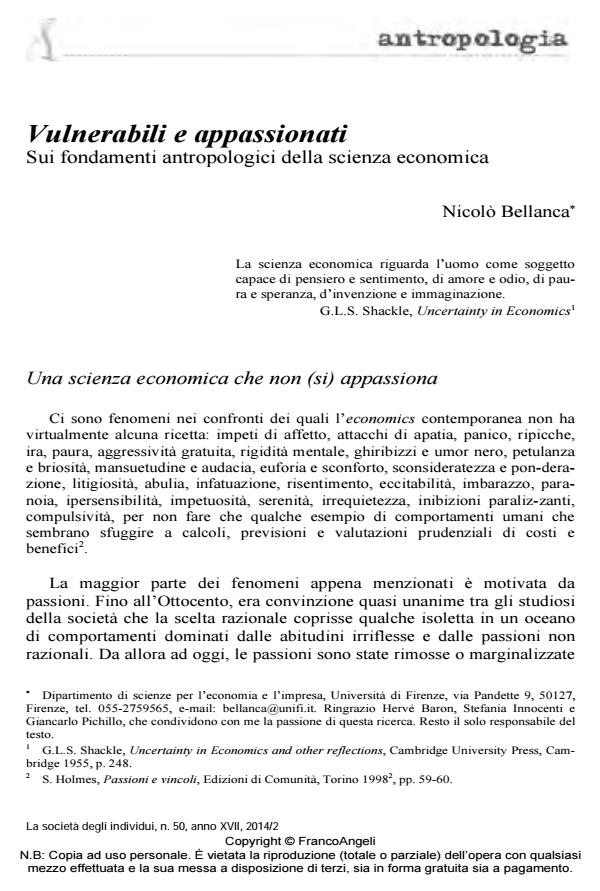Vulnerabili e appassionati. Sui fondamenti antropologici della scienza economica
Titolo Rivista SOCIETÀ DEGLI INDIVIDUI (LA)
Autori/Curatori Nicolò Bellanca
Anno di pubblicazione 2014 Fascicolo 2014/50
Lingua Italiano Numero pagine 14 P. 133-146 Dimensione file 541 KB
DOI 10.3280/LAS2014-050007
Il DOI è il codice a barre della proprietà intellettuale: per saperne di più
clicca qui
Qui sotto puoi vedere in anteprima la prima pagina di questo articolo.
Se questo articolo ti interessa, lo puoi acquistare (e scaricare in formato pdf) seguendo le facili indicazioni per acquistare il download credit. Acquista Download Credits per scaricare questo Articolo in formato PDF

FrancoAngeli è membro della Publishers International Linking Association, Inc (PILA)associazione indipendente e non profit per facilitare (attraverso i servizi tecnologici implementati da CrossRef.org) l’accesso degli studiosi ai contenuti digitali nelle pubblicazioni professionali e scientifiche
In standard economic models human action is driven solely by self-interest while the passions are supposed to interfere with our ability to form rational beliefs and to make rational choices. Nevertheless, without the passions there would be little reason to act. In fact, any action originated and nurtured by passions places its own raison d’être in itself. The acts motivated by passions can either improve or (even) worsen one’s wellbeing: there might not be any payoff in both the present and the future and monetary incentives do not influence or mitigate their nature. Above all, under the influence of the passions, the actor does not calculate but instead ‘loses control’. This paper argues against the separation of passion-infused intimate relations and economic theory through a reconsideration of the anthropological conception of the economics.
- Isocracy Nicolò Bellanca, pp.147 (ISBN:978-3-030-00694-5)
Nicolò Bellanca, Vulnerabili e appassionati. Sui fondamenti antropologici della scienza economica in "SOCIETÀ DEGLI INDIVIDUI (LA)" 50/2014, pp 133-146, DOI: 10.3280/LAS2014-050007